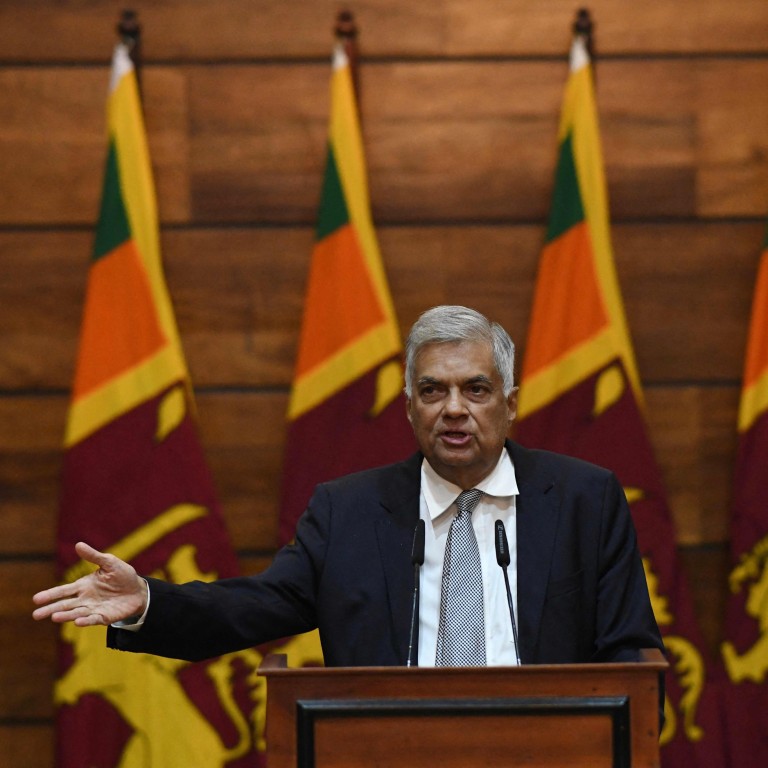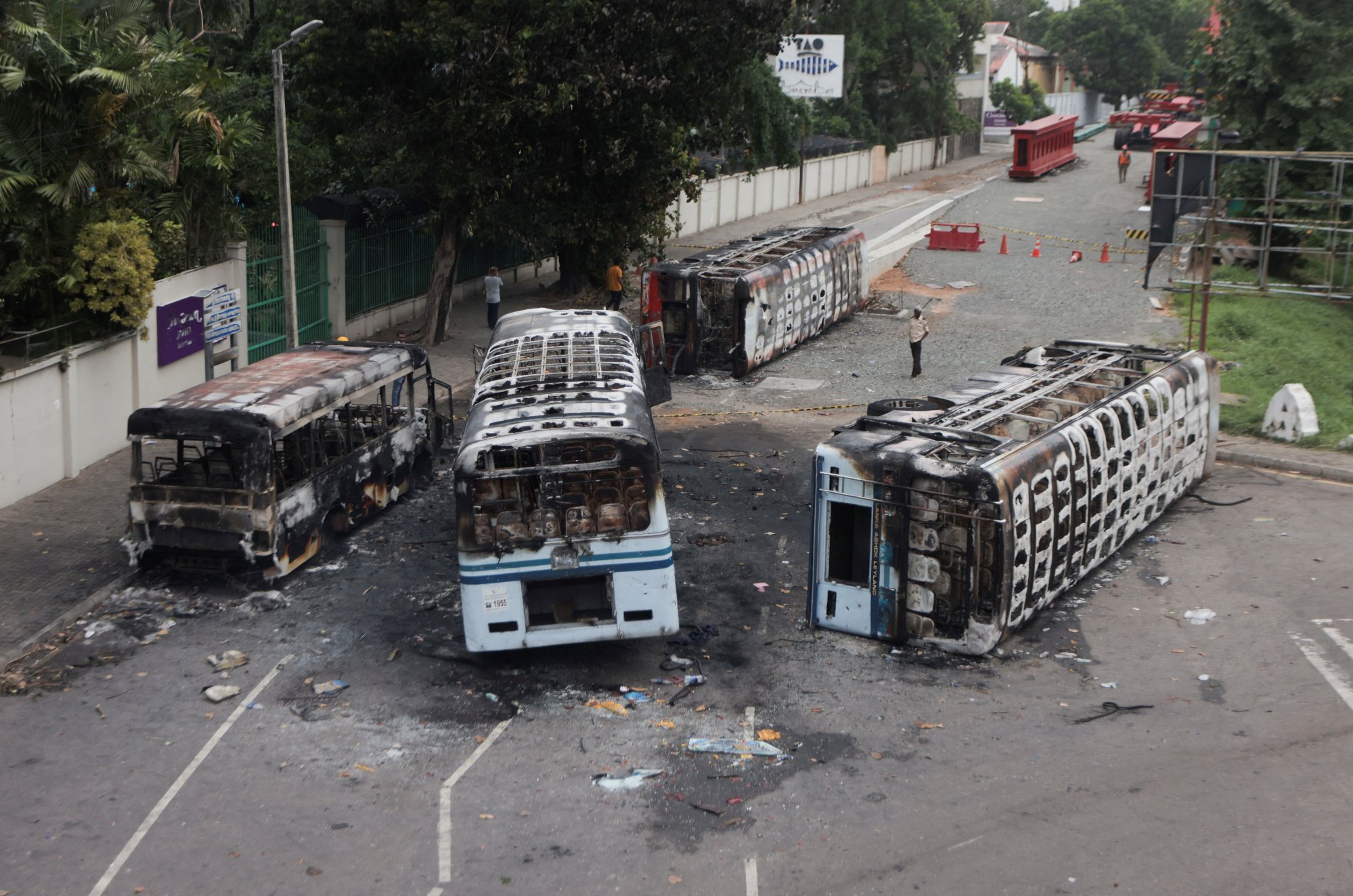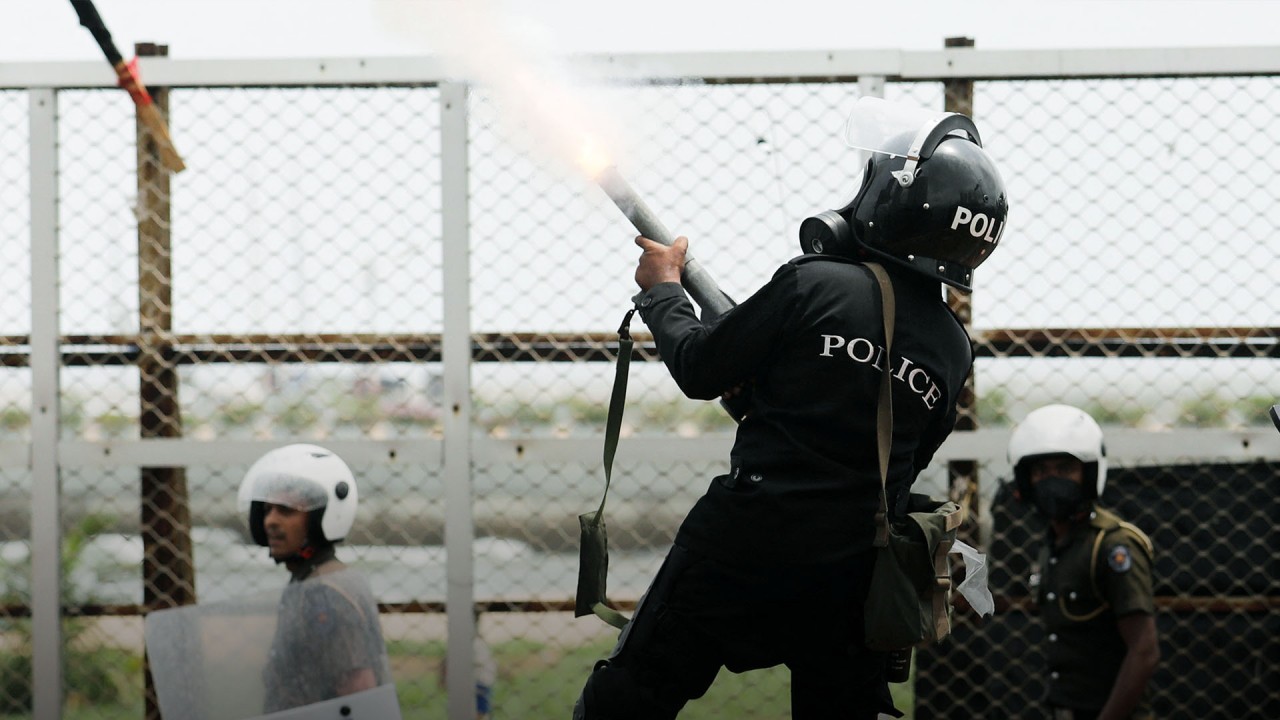
Sri Lanka’s Ranil Wickremesinghe named new PM in bid to end political instability
- President Gotabaya Rajapaksa appointed the veteran politician as the new premier in an effort to bring stability to the violence-hit island nation
- Rajapaksa also promised constitutional changes to give more power to the parliament
Sri Lanka’s president swore in veteran politician Ranil Wickremesinghe as the new prime minister on Thursday, officials said.
The 73-year-old had taken his oath of office, according to the media office of President Gotabaya Rajapaksa, who faces widespread protests demanding his resignation over the country’s worsening economic crisis.
Earlier, Rajapaksa also promised constitutional changes to give more power to the parliament, a long-held demand of the protesters. They have also demanded the amendment curtail the sweeping powers of the president’s office.
“I will give the opportunity for the new government and prime minister to start a new programme to take the country forward,” the leader said.
Wickremesinghe has already served in the office five times – but it remains unclear if he will be able to get any legislation through parliament.
“We are facing a crisis, we have to get out of it,” Wickremesinghe said as he left a temple in the main city of Colombo shortly after his swearing-in. Asked whether there was a possible solution, he replied: “Absolutely.”
How China-backed projects made Sri Lanka’s economic meltdown worse
“A cabinet is likely to be appointed tomorrow,” Sudewa Hettiarachchi, a spokesman for President Rajapaksa, said.
Defence Ministry Secretary Kamal Gunaratne, an ally of Rajapaksa, denied that the state of emergency declared last week was a step toward military rule.
“We know people have difficulties. But we also have to protect people,” Gunaratne said in press briefing in Colombo. “We are called to calm the situation. We are under civilian government. When the situation is calm we will stay back.”
Gunaratne also confirmed that former premier Mahinda Rajapaksa, the president’s brother, was evacuated to Trincomalee naval base in the northeast after protesters stormed his residence in Colombo.
A court banned him, his politician son Namal, and more than a dozen allies from leaving the country on Thursday after ordering an investigation into the violence.
“Congratulations to the newly appointed Prime Minister,” Mahinda tweeted on Thursday.
“I wish you all the best as you navigate these troubled times.”
Security forces patrolling in armoured personnel carriers with orders to shoot looters on sight have largely restored order.
A curfew was lifted Thursday morning – only to be reimposed after a six-hour break allowing Sri Lanka’s 22 million people to stock up on essentials.
Wickremesinghe had already been working closely with Rajapaksa before his appointment, to shake up the finance ministry and the central bank with sweeping policy changes, an official close to their discussions said.
The main opposition SJB party was initially invited to lead a new government, but its leader Sajith Premadasa insisted the president first step down.
In recent days the party has split, with a dozen SJB lawmakers pledging support to Wickremesinghe.
Sri Lankan businesses left reeling by spiralling economic crisis
Meanwhile, Sri Lanka’s central bank chief imposed more capital controls and threatened to resign if politicians fail to return stability to the nation in the grip of its worst economic crisis since independence.
“I took on this responsibility with expectations that political stability will be established,” Governor Nandalal Weerasinghe said at a briefing in Colombo Wednesday. “It’s been more than a month with no progress. I do not wish to continue in this post if political stability is not achieved.”
The call follows days of political violence, with clashes between pro- and anti-government groups pushing the prime minister to resign and dissolving his cabinet. A government is essential to agree a loan from the International Monetary Fund or win crucial bridging loans from countries willing to bail out Sri Lanka.

The IMF in a statement overnight expressed concerns about the violence, adding that it continues “technical level” discussions to be ready for policy talks once a new Sri Lankan government is formed. If Weerasinghe steps down, there’s a risk even the technical talks may slow.
Apart from the IMF and debt-restructuring talks, Sri Lanka needs a finance minister to take essential steps including raising taxes and energy prices, Weerasinghe said. If revenues fail to grow, the central bank will have to print more money, he warned.
The Central Bank of Sri Lanka has raised interest rates by 850 basis points this year alone to fight inflation that has accelerated to a record almost 30 per cent in April. Boosting money supply would only worsen price pressures and accelerate outflows in a nation facing a dire shortage of dollars.
‘Weeks, if not days’: Sri Lanka on brink of catastrophic number of deaths
To curb black market transactions, the monetary authority plans to issue guidance to banks on movement of the exchange rate, including a daily trading band for the rupee-dollar trade, Weerasinghe said. Operating instructions will be issued on Thursday.
“Seems like an administrative peg which will keep getting revised on a daily basis,” said Saurav Anand, economist for South Asia at Standard Chartered Plc. “So unlike the earlier regime where value was fixed at 203; this time it would be revised on a daily basis.”
Additional reporting by Agence France-Presse, Reuters


